For readers of Nora Ephron, Tina Fey, and David Sedaris, this hilarious, poignant, and extremely frank collection of personal essays confirms Lena Dunham—the acclaimed creator, producer, and star of HBO’s Girls—as one of the brightest and most original writers working today.
“If I could take what I’ve learned and make one menial job easier for you, or prevent you from having the kind of sex where you feel you must keep your sneakers on in case you want to run away during the act, then every misstep of mine was worthwhile. I’m already predicting my future shame at thinking I had anything to offer you, but also my future glory in having stopped you from trying an expensive juice cleanse or thinking that it was your fault when the person you are dating suddenly backs away, intimidated by the clarity of your personal mission here on earth. No, I am not a sexpert, a psychologist, or a dietician. I am not a mother of three or the owner of a successful hosiery franchise. But I am a girl with a keen interest in having it all, and what follows are hopeful dispatches from the frontlines of that struggle.”
Following his blockbuster biography of Steve Jobs, The Innovators is Walter Isaacson's revealing story of the people who created the computer and the Internet. It is destined to be the standard history of the digital revolution and an indispensable guide to how innovation really happens.
What were the talents that allowed certain inventors and entrepreneurs to turn their visionary ideas into disruptive realities? What led to their creative leaps? Why did some succeed and others fail?
In his masterly saga, Isaacson begins with Ada Lovelace, Lord Byron's daughter, who pioneered computer programming in the 1840s. He explores the fascinating personalities that created our current digital revolution, such as Vannevar Bush, Alan Turing, John von Neumann, J.C.R. Licklider, Doug Engelbart, Robert Noyce, Bill Gates, Steve Wozniak, Steve Jobs, Tim Berners-Lee, and Larry Page.
This is the story of how their minds worked and what made them so inventive. It's also a narrative of how their ability to collaborate and master the art of teamwork made them even more creative. For an era that seeks to foster innovation, creativity, and teamwork, The Innovators shows how they happen.
In this beautifully written and powerful memoir, author Craig K. Collins ushers readers down a remarkable path – one that wends from the American frontier to present-day suburbia. Along the way, he explores the meaning of a history – of his family's and his country's – that is infused with the culture of the gun. Stops include an Indian massacre at Bad Axe, the siege of Vicksburg, the slaughter of buffalo in Montana, and the discovery of gold in a remote Nevada canyon.
The story begins on a hunting trip Collins took with his father and brothers in the early '70s, when he was accidentally shot with a high-powered deer rifle at the age of 13 near the top of an isolated peak in Northeastern Nevada. He tells a personal story of a childhood in Idaho and Nevada, where hunting is a way of life and guns are revered – often with fatal and unintended results. He recalls friends – past and present – whose lives have been forever shattered or altered by the explosive force of a bullet.
In Being Mortal, bestselling author Atul Gawande tackles the hardest challenge of his profession: how medicine can not only improve life but also the process of its ending
Medicine has triumphed in modern times, transforming birth, injury, and infectious disease from harrowing to manageable. But in the inevitable condition of aging and death, the goals of medicine seem too frequently to run counter to the interest of the human spirit. Nursing homes, preoccupied with safety, pin patients into railed beds and wheelchairs. Hospitals isolate the dying, checking for vital signs long after the goals of cure have become moot. Doctors, committed to extending life, continue to carry out devastating procedures that in the end extend suffering.
Gawande, a practicing surgeon, addresses his profession’s ultimate limitation, arguing that quality of life is the desired goal for patients and families. Gawande offers examples of freer, more socially fulfilling models for assisting the infirm and dependent elderly, and he explores the varieties of hospice care to demonstrate that a person's last weeks or months may be rich and dignified.
Full of eye-opening research and riveting storytelling, Being Mortal asserts that medicine can comfort and enhance our experience even to the end, providing not only a good life but also a good end.
“If I could take what I’ve learned and make one menial job easier for you, or prevent you from having the kind of sex where you feel you must keep your sneakers on in case you want to run away during the act, then every misstep of mine was worthwhile. I’m already predicting my future shame at thinking I had anything to offer you, but also my future glory in having stopped you from trying an expensive juice cleanse or thinking that it was your fault when the person you are dating suddenly backs away, intimidated by the clarity of your personal mission here on earth. No, I am not a sexpert, a psychologist, or a dietician. I am not a mother of three or the owner of a successful hosiery franchise. But I am a girl with a keen interest in having it all, and what follows are hopeful dispatches from the frontlines of that struggle.”
Following his blockbuster biography of Steve Jobs, The Innovators is Walter Isaacson's revealing story of the people who created the computer and the Internet. It is destined to be the standard history of the digital revolution and an indispensable guide to how innovation really happens.
What were the talents that allowed certain inventors and entrepreneurs to turn their visionary ideas into disruptive realities? What led to their creative leaps? Why did some succeed and others fail?
In his masterly saga, Isaacson begins with Ada Lovelace, Lord Byron's daughter, who pioneered computer programming in the 1840s. He explores the fascinating personalities that created our current digital revolution, such as Vannevar Bush, Alan Turing, John von Neumann, J.C.R. Licklider, Doug Engelbart, Robert Noyce, Bill Gates, Steve Wozniak, Steve Jobs, Tim Berners-Lee, and Larry Page.
This is the story of how their minds worked and what made them so inventive. It's also a narrative of how their ability to collaborate and master the art of teamwork made them even more creative. For an era that seeks to foster innovation, creativity, and teamwork, The Innovators shows how they happen.
In this beautifully written and powerful memoir, author Craig K. Collins ushers readers down a remarkable path – one that wends from the American frontier to present-day suburbia. Along the way, he explores the meaning of a history – of his family's and his country's – that is infused with the culture of the gun. Stops include an Indian massacre at Bad Axe, the siege of Vicksburg, the slaughter of buffalo in Montana, and the discovery of gold in a remote Nevada canyon.
The story begins on a hunting trip Collins took with his father and brothers in the early '70s, when he was accidentally shot with a high-powered deer rifle at the age of 13 near the top of an isolated peak in Northeastern Nevada. He tells a personal story of a childhood in Idaho and Nevada, where hunting is a way of life and guns are revered – often with fatal and unintended results. He recalls friends – past and present – whose lives have been forever shattered or altered by the explosive force of a bullet.
A fascinating fusion of memoir, manners, and cultural history from a successful business
-woman well versed in the unique challenges of working in contemporary China.
During the course of a career that has, quite literarily, moved her around the world, no country has fascinated Eden Collinsworth more than China, where she has borne witness to its profound transformation. After numerous experiences there that might best be called "unusual" by Western standards, she concluded that despite China's growing status as a world economy, businessmen in mainland China were fundamentally uncomfortable in the company of their Western counterparts. This realization spawned an idea to work collaboratively with a major Chinese publisher on a Western etiquette guide, which went on to became a bestseller and prompted a branch of China's Ministry of Education to suggest that she create a curriculum for the school system.
During the course of a career that has, quite literarily, moved her around the world, no country has fascinated Eden Collinsworth more than China, where she has borne witness to its profound transformation. After numerous experiences there that might best be called "unusual" by Western standards, she concluded that despite China's growing status as a world economy, businessmen in mainland China were fundamentally uncomfortable in the company of their Western counterparts. This realization spawned an idea to work collaboratively with a major Chinese publisher on a Western etiquette guide, which went on to became a bestseller and prompted a branch of China's Ministry of Education to suggest that she create a curriculum for the school system.
In I Stand Corrected, Collinsworth tells the entertaining and insightful story of the year she spent living among the Chinese while writing a book featuring advice on such topics as the non-negotiable issue of personal hygiene, the rules of the handshake, and making sense of foreigners. Scrutinizing the kind of etiquette that has guided her own business career, one which has unfolded in predominately male company, Collinsworth creates a counterpart that explains Chinese practices and reveals much about our own Western culture. At the same time, I Stand Corrected is a wry but self-effacing reflection on the peripatetic career she led while single-handedly raising her son, and here she details the often madcap attempts to strike a balance that was right for them both.
A provocative meditation on race, Claudia Rankine’s long-awaited follow up to her ground-breaking book Don’t Let Me Be Lonely: An American Lyric
Claudia Rankine’s bold new book recounts mounting racial aggressions in ongoing encounters in twenty-first-century daily life and in the media. Some of these encounters are slights, seeming slips of the tongue, and some are intentional offensives in the classroom, at the supermarket, at home, on the tennis court with Serena Williams and the soccer field with Zinedine Zidane, online, on TV—everywhere, all the time. The accumulative stresses come to bear on a person’s ability to speak, perform, and stay alive. Our addressability is tied to the state of our belonging, Rankine argues, as are our assumptions and expectations of citizenship. In essay, image, and poetry, Citizen is a powerful testament to the individual and collective effects of racism in our contemporary, often named “post-race” society.
Claudia Rankine’s bold new book recounts mounting racial aggressions in ongoing encounters in twenty-first-century daily life and in the media. Some of these encounters are slights, seeming slips of the tongue, and some are intentional offensives in the classroom, at the supermarket, at home, on the tennis court with Serena Williams and the soccer field with Zinedine Zidane, online, on TV—everywhere, all the time. The accumulative stresses come to bear on a person’s ability to speak, perform, and stay alive. Our addressability is tied to the state of our belonging, Rankine argues, as are our assumptions and expectations of citizenship. In essay, image, and poetry, Citizen is a powerful testament to the individual and collective effects of racism in our contemporary, often named “post-race” society.
Medicine has triumphed in modern times, transforming birth, injury, and infectious disease from harrowing to manageable. But in the inevitable condition of aging and death, the goals of medicine seem too frequently to run counter to the interest of the human spirit. Nursing homes, preoccupied with safety, pin patients into railed beds and wheelchairs. Hospitals isolate the dying, checking for vital signs long after the goals of cure have become moot. Doctors, committed to extending life, continue to carry out devastating procedures that in the end extend suffering.
Gawande, a practicing surgeon, addresses his profession’s ultimate limitation, arguing that quality of life is the desired goal for patients and families. Gawande offers examples of freer, more socially fulfilling models for assisting the infirm and dependent elderly, and he explores the varieties of hospice care to demonstrate that a person's last weeks or months may be rich and dignified.
Full of eye-opening research and riveting storytelling, Being Mortal asserts that medicine can comfort and enhance our experience even to the end, providing not only a good life but also a good end.
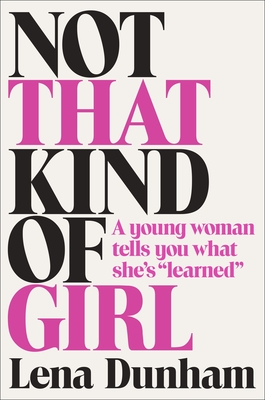
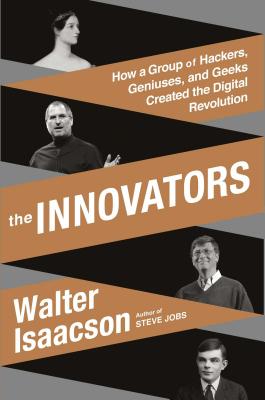
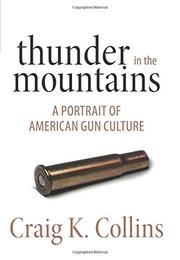
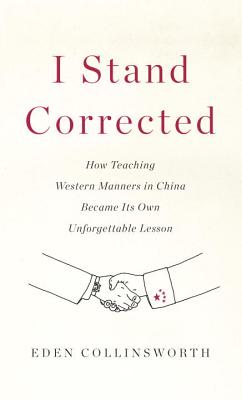
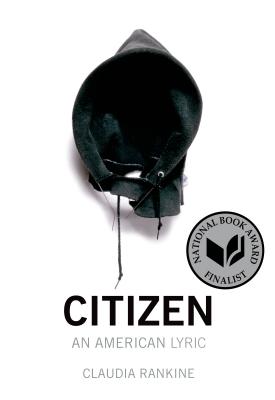

No comments:
Post a Comment